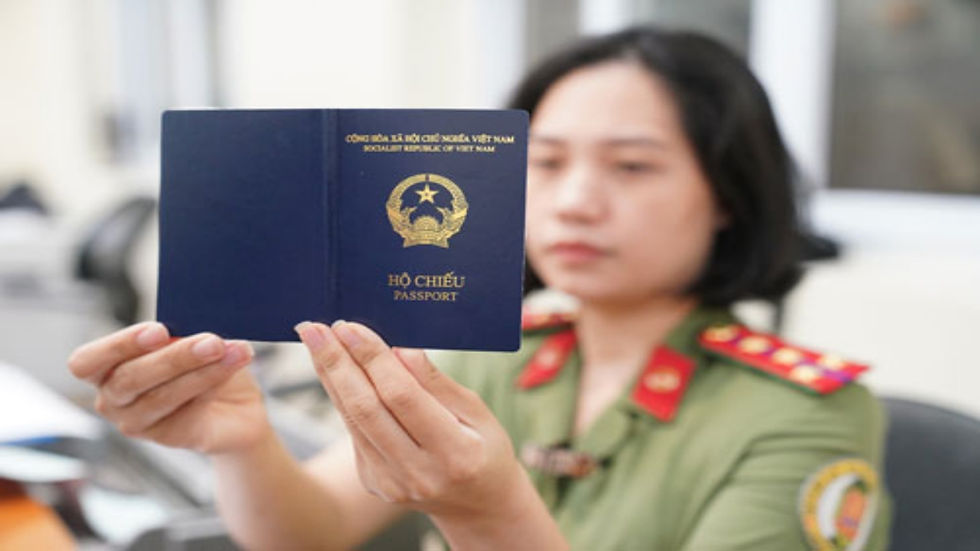Immigration News July 2025: Vietnam Launches a Wave of Reforms That Are Transforming Daily Life
- RelocationVietnam
- Jul 9, 2025
- 2 min read

Since July 1st, 2025, Vietnam has undergone a major transformation of its administrative and legal framework. Gone are the opaque procedures, paper files, and parallel systems: the country is entering a new digital era, built on transparency and public service orientation.
Whether it's about identity, taxation, housing, security, or e-commerce, the changes are significant — and affect Vietnamese citizens, expats, and foreign businesses alike.
1. Mandatory Digital Identity for All Residents (Including Foreigners)
Starting July 1st, all residents in Vietnam — including foreigners holding a temporary or permanent residence card (TRC or PRC) — must obtain a chip-based digital identity card.
This card becomes the sole reference for all procedures: taxes, banking, social security, real estate, and more.
For expats:
Have a Vietnamese phone number registered in your name
Install the VNeID and eTaxMobile apps
Visit the immigration office with passport + TRC/PRC
Register with the tax office before July 10, 2025
Processing time: around 10 minutes on site, card ready within 48 hours.
2. Mandatory Fire Insurance for Residential Buildings
From now on, all residential buildings of 5 floors or more must be covered by compulsory fire and explosion insurance.
This is a long-awaited measure to improve safety for residents in major cities.
3. E-Commerce Taxation: Platforms Must Withhold Taxes
Platforms like Shopee, Lazada, Tiki — including foreign platforms — must now automatically withhold VAT and income tax from each seller.
This reform aims to bring better regulation to Vietnam’s booming digital economy.
4. National ID Number Becomes Personal Tax Code
The 12-digit number on the new digital identity card replaces all previous personal tax IDs.
This simplification aims to make procedures easier and boost tax transparency.
5. Local Issuance of Land Use Certificates in 3 Days
Land use rights certificates (commonly known as “red books”) can now be issued in 3 days, directly at the communal level by local presidents.
This is a major breakthrough against the slow and centralized land administration process.
6. Judicial System Reform
Vietnam has adopted a new three-tier judicial structure, including regional courts and specialized intellectual property courts (IP).
This reform is intended to improve the handling of civil and commercial cases, especially for foreign investors.
Other Notable Measures
Mandatory social insurance for small businesses and informal workers
Early retirement possible after 15 years of voluntary contributions
No VAT deduction for cash payments — digital payment encouraged
2% VAT reduction extended until 2026
Old ATM bank cards disabled — shift to digital banking
Why It Matters
These reforms mark a deep shift:
From paper-based administration to fully digital systems
From centralized governance to citizen-focused local services
From bureaucratic complexity to service fluidity
From a control-based state to a user-oriented public service model
How Relocation Vietnam Can Support You
At Relocation Vietnam, we help our clients navigate these changes, especially with:
Obtaining the new digital ID card
Registering with the new tax ID system
Ensuring compliance for e-commerce businesses
Monitoring new obligations related to insurance, housing, and retirement
Need assistance? Contact our team for personalized support.



Comments